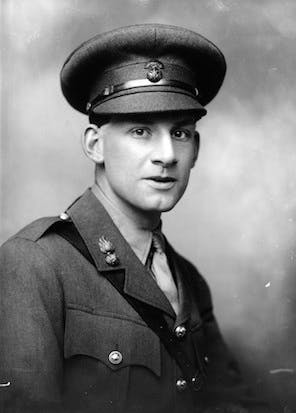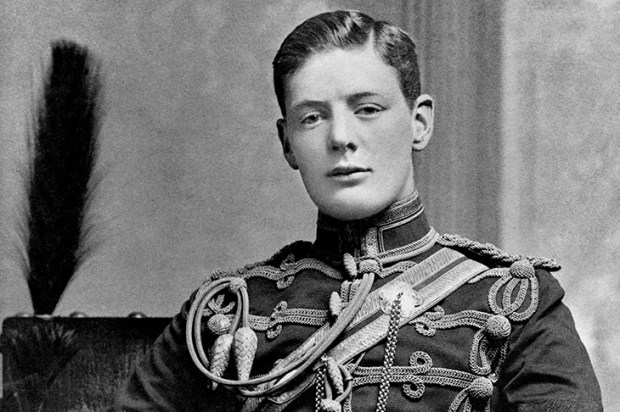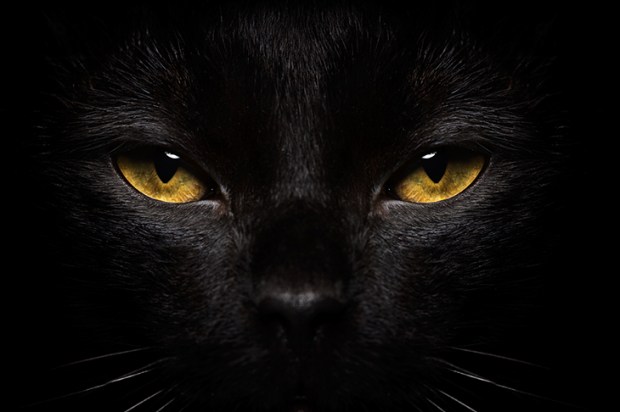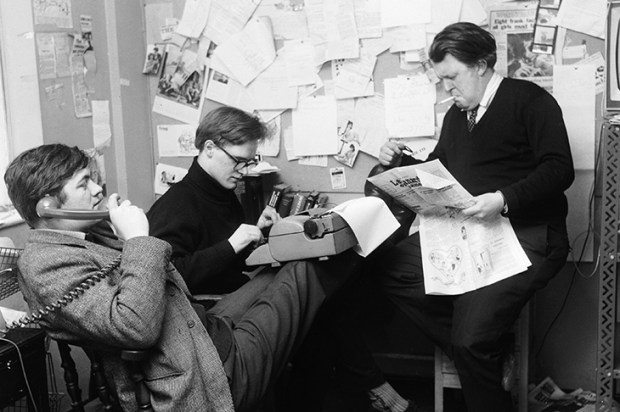Reading Memoirs of a Fox-Hunting Man, as I have recently, you cannot help but be struck by what a perfectly idyllic place rural England must have been (at least for a young man of independent means) in the run-up to the first world war. Sassoon wrote it, of course, in middle age after he’d served his time in the trenches. But none of his wartime experiences are allowed to colour the innocent tone of his fictionalised memoir. As far as his narrator George Sherston is concerned, the bliss is going to last for ever.
Because the first world war is now very familiar history, the mistake I think we’re inclined to make with the benefit of hindsight is to assume that, for those who took part in it, it was all a fait accompli. That is, we imagine somehow that people were different back then — that they were tougher, less sentimental, more bovine and accepting of their lot. We picture them shrugging their shoulders as the call-up papers landed on the doorstep, casting a wistful glance at the wives and children they might now not see into old age and going: ‘Ah well. There was I with my life all nicely planned out. But now it seems old Kaiser Bill’s had other ideas.’
It wasn’t quite like that, though, I reckon. While people in the Edwardian era had a stiffer attitude to duty, a stronger faith in God and lower expectations about their right to happiness, they were prey to just the same human feelings as we are. Siegfried Sassoon, for example, would I am sure have much preferred it had he been able to title the sequel to his semi-fictionalised fox-hunting autobiography Memoirs of a Portly Country Squire Quite Unencumbered by Hideous Nightmares of the Horror of the Trenches. But he couldn’t, of course, because — as it did for the rest of his generation — duty beckoned.
Sassoon’s war, according to his friend, fellow officer and poet Robert Graves, was characterised by suicidal acts of bravery. He was recommended — unsuccessfully — for the Victoria Cross. But this didn’t mean he gloried in war or hated the enemy: his poetry on the waste of it all is testament to that. He simply recognised as everyone did at the time (apart from the rather over-fêted conscientious objectors) that in times of national emergency you have to pull your weight; and that, furthermore, whatever personal reservations you might have about the rights and wrongs of the conflict in which you are engaged, there are occasions when you simply have to sacrifice your individual desires and needs for the common good.
This becomes even more true when, as Sassoon did, you become a combat infantryman. One of the more troubling aspects of war, for those at the sharp end, is the knowledge that there may be occasions when either you personally — or your unit — are expected to take a hit for the team. That is, whether as ‘point’ in a patrol, or as the rearguard covering a retreat, or as the vital flank which must be held at all costs, you may be required to make the ultimate sacrifice in order to prevent what would otherwise be even greater losses among your comrades.
You generally do this not because you like it, let alone because you subscribe to the old lie dulce et decorum est pro patria mori, but because you know that your comrades would do just the same for you. And also because — as fighting men have appreciated through most of history from the Roman testudo and the Anglo-Saxon shield wall to the squares at Albuera and the foxholes of Bastogne — you’re only as strong as your weakest link. If one of you caves, you all die — so it’s just as well, really, that even (or especially) in free nations with relatively lax military discipline, men fear cowardice more than they fear death. Otherwise western civilisation could never have been successfully created or defended.
Do we still understand it now, though? Having read some of the reactions in some sections of the media to the recent events in Paris, I’m not altogether sure that we do. The excuses offered sound superficially plausible — ‘You can’t shout fire in a crowded theatre’, ‘needless provocation’ etc. — but strip away the rhetoric, and the irrelevant invocations of ‘the spectre of the far right’ and ‘Gaza’ — they all boil down to the same thing: ‘Please. Not me. I don’t want to die.’
This troubles me. Not the bit about people not wanting to die — that’s normal — but this apparent failure to accept that freedom isn’t free and that every now and then you’ve got to put your money where your mouth is, as they first did at Salamis, and sacrifice your well-being for the greater cause.
And ‘sacrifice your well-being’, in this particular instance, doesn’t mean anything as drastic as going to freeze or drown in Flanders mud or being sent off in a troopship to fight the Japanese in Burma. It just means sticking up, calmly but firmly, for the basic principles that have made our civilisation great; acknowledging that there are lines in the sand that cannot be crossed; appreciating that though — yes — it really is a bit scary having to defend free speech when there are those about who want to make doing so a capital offence, the alternative is as selfish and craven and unthinkably irresponsible as betraying the man next to you in the trench, the testudo or the shield wall.
Got something to add? Join the discussion and comment below.
Get 10 issues for just $10
Subscribe to The Spectator Australia today for the next 10 magazine issues, plus full online access, for just $10.















Comments
Don't miss out
Join the conversation with other Spectator Australia readers. Subscribe to leave a comment.
SUBSCRIBEAlready a subscriber? Log in